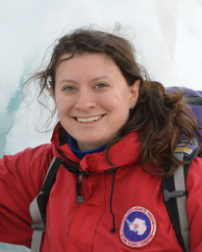
- About
- Education
- Research
- Thought Leadership
- Engagement
- News & Events
Back to Top Nav
Back to Top Nav
Back to Top Nav
Back to Top Nav
Back to Top Nav
Ellery Curtis '22 and Sebastian Fernandez '24, Irving Institute Communications Interns, have compiled a list of classes for students interested in energy-related courses. As you choose your courses for this winter, keep an eye out for the following classes that will give you a broad range of energy knowledge.

ENVS 80.01: Arctic Environmental Change:
Professor: Lauren Culler
Time: 12
ENVS 80.01 examines how resource development is contributing to rapid environmental change in the Arctic. Her personal research zooms in on how this rapid change is impacting insect populations in Northern ecosystems, but this course zooms out on broader aspects of climate change, natural resource management, and the social impacts of both.
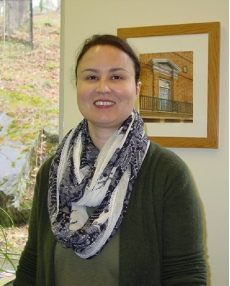
ENVS 56: Environmental and Economic Governance
Professor: D.G. Webster
Time: 11
This course helps students think critically about cost and benefit tradeoffs between different environmental governance decisions, including those related to our energy mix. The course is project-based, and there are often opportunities to choose those energy-related projects that align with your interests.
While Professor Webster's research and publications have mainly focused on fishery management, she brings extensive expertise in consumer choice and sustainability, green business, and incentive-based regulation to craft a course that is important in understanding how economic and political factors interact to shape our environmental systems.

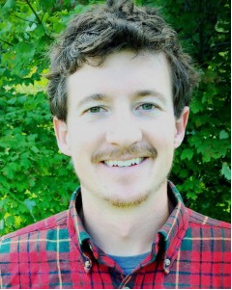
ENVS 2: Introduction to Environmental Science
Professors: Veer Chaudhary, Morgan Peech
Time: 11
ENVS 2 looks at the physical, biological, chemical and social processes behind Earth's current environmental problems--including climate change and the energy use patterns contributing to it. This course will be critical for students looking to gain a foundational knowledge of the environmental impacts of our energy choices.
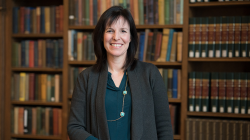
ENVS 12: Energy and the Environment
Professor: Elizabeth Wilson
Time: 10A
Many students know the energy system needs to change but don't know how! ENVS 12 will help you start seeing the many dimensions of energy, from how we use it, how it affects us and how the politics, resources, finance, and energy legacies in different contexts are driving our energy futures. You will leave this class better understanding energy in your life, in your community and around the world. None of our energy infrastructures have been designed, built, or operated for the world we are moving into and without energy we, well… die. So, come learn how to be part of transforming the energy systems and live a little.
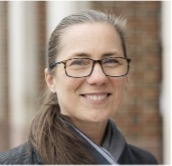
ENVS 80.08: Science Policy and Diplomacy
Professor: Melody Burkins
Time: 12
This course introduces students to emerging opportunities for engagement and action at the intersection of science, technology, policy, and diplomacy, by developing the "boundary spanning" skills critical for more science-informed, equitable, and inclusive policy solutions. Students can expect highly interactive and multidisciplinary, including negotiation simulations, policy brief development, social impact work with local organizations, and seminars discussing current issues with invited leaders in science policy and science diplomacy. With over 30 years of experience as a polar scientist working in academia and governance, Professor Burkins is an advocate for policy-engaged scholarship, experiential education, and the support of science policy and diplomacy initiatives advancing sustainability, inclusion, and gender equality in the Arctic and around the world.
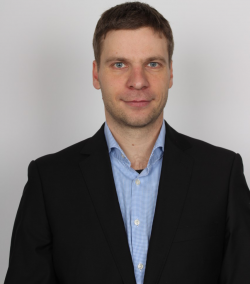
ENVS 80.15: EU Energy Policy
Professor: Filip Cernoch
Time: 2A
Fulbright Scholar Filip Cernoch joins the ENVS Department for the Winter term from Masaryk University in the Czech Republic. He gives the following three reasons why students interested in energy should take his course:
"First, the EU is the largest trade block in the world, biggest exporter of manufactured goods and services, and among the biggest import markets. At the same time, the EU has committed to fully decarbonize its energy and economy by 2050 and is pursuing this goal with great ambition. Whether it succeeds or fails, it will have major implications for the rest of the world, including the US.
Secondly, understanding European energy also enables a better understanding of US energy. The EU has developed its own set of economic, political, technical, social, and regulatory tools to address energy issues, and Dartmouth College students can benefit from comparing these tools and policies with those used in the US. What works, what doesn't work, and why? Which European solutions could be used in the US and which ones should be avoided?
Third, the course shows how difficult (if not impossible) it is to secure cheap, geopolitically secure and environmentally acceptable energy supplies all at once."
When not working on Energy Research, Professor Cernoch can be found training for Ironmans. Ask him what his best time is!
ENGS 018: System Dynamics in Policy Design and Analysis
Professor: Steven Peterson
Time: 2A
This course will introduce you to system dynamics, an approach to policy design and analysis that can help you gain a better understanding of the underlying structural causes of problem behavior in social, economic, political, environmental, technological, and biological systems. This understanding can then help you design policies aimed at improving these problems.
Sustainable Energy Minor
Dartmouth now offers a Sustainable Energy Minor track within the Environmental Studies minor! Check out the Environmental Studies Department site to learn more.
Energy 101
Finally, look out for a registration link for Energy 101, a free, extracurricular course that will be run by the Irving Institute this winter! This course gives participants an opportunity to learn basic energy concepts, terminology, and contexts. Geared toward learners with little to no experience with energy, Energy 101 will start with a history of energy across human experience, and then examine key aspects of energy and society, from fossil fuels, to renewables, to energy systems and energy transitions.
Learn more about adding energy coursework to your Dartmouth academic experience.